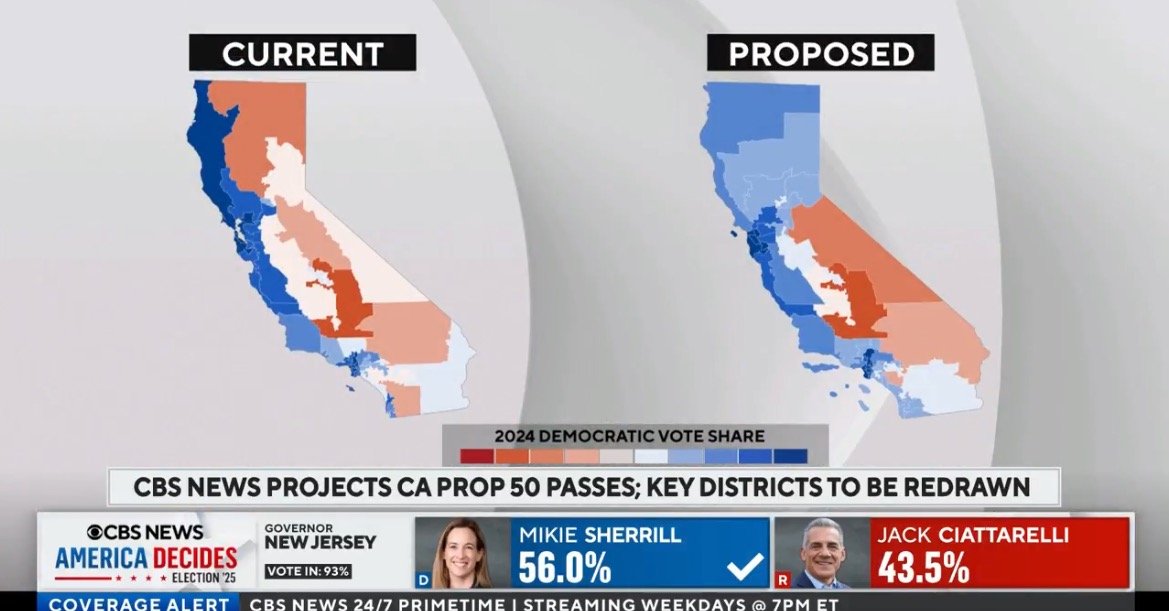California has dramatically shifted the political landscape with the passage of Proposition 50, a move poised to reshape the balance of power in the House of Representatives. The decision hands control of congressional district mapping to the state legislature, currently dominated by Democrats, effectively bypassing the independent redistricting commission.
The implications are significant, potentially creating as many as five new districts leaning Democratic. This strategic maneuver directly counters recent redistricting efforts in Texas, which aimed to solidify Republican control of several seats.
Five Republican incumbents now find themselves squarely in the crosshairs: Doug LaMalfa, Kevin Kiley, David Valadao, Ken Calvert, and Darrell Issa. Their districts are the primary targets for reshaping, setting the stage for fiercely contested battles in the 2026 midterm elections.

The vote wasn't without immediate controversy. Former President Trump swiftly condemned the outcome, labeling it a “giant scam” and alleging widespread irregularities in the voting process, particularly concerning mail-in ballots.
Trump asserted that a “criminal review” is underway, suggesting the entire process was “rigged” to exclude Republican voters. His statements reflect deep concerns about the fairness and integrity of the election’s outcome.
Proposition 50 effectively pauses the state’s commitment to nonpartisan redistricting, at least until 2030. This temporary shift allows Democrats to capitalize on the state’s demographic trends and potentially expand their influence in Congress.

The passage of this measure underscores the high stakes of redistricting battles across the nation. Control over how voting districts are drawn can fundamentally alter the outcome of elections, making it a crucial component of the ongoing political struggle for power.
This decision places California at the epicenter of the national fight for the House majority, intensifying the already heated political climate and promising a period of intense campaigning and legal challenges.





